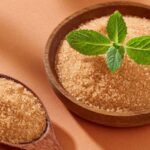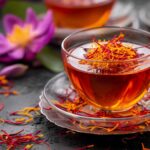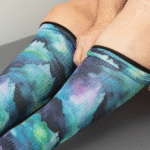Oiling hair in winter could also be the most effective house treatment for dry tresses. Select the precise hair oil and apply it within the right method to reap its advantages.
Your weekend haircare routine most likely entails pouring oil onto your mane and massaging it in. You might not discover utilizing hair oil throughout summer season to be engaging, however make certain to achieve out for this product when it will get chilly outdoors. Oiling hair in winter will present hydration that your tresses want. If you happen to don’t preserve them hydrated, your tresses will get dry and brittle. Aside from boosting moisture, this haircare product may additionally add shine to your mane, and enhance your general hair well being. However must you go for coconut oil in winter or different varieties of hair oil? Let’s discover out which one will work greatest for you.
What are the advantages of oiling hair in winter?
Winter typically leaves hair dry, brittle, and inclined to break. “Common oiling hair is an easy but efficient option to counteract these seasonal results,” says dermatologist Dr Shifa Yadav.

1. Prevents dryness and hydrates the scalp
The pure oils of the scalp get peeled off as a result of chilly temperatures, which ends up in dryness and flakiness. “Massaging of the scalp with coconut, argan, or almond oil maintains the moisture,” says the professional. It types a lipid barrier that stops the incidence of transepidermal water loss, the quantity of water that evaporates by means of pores and skin to the exterior surroundings.
2. Improves blood circulation
Scalp therapeutic massage whereas oiling hair enhances microcirculation that will increase oxygen and nutrient supply to the hair follicle. “This helps the anagen or progress section of the hair cycle, stimulating the synthesis of keratin, growing follicular energy, and in flip, offering better-quality, extra resistant hair,” says the professional.
3. Nourishes hair follicles
Hair oils are wealthy in fatty acids, nutritional vitamins corresponding to E and D, and antioxidants. “These parts penetrate the hair shaft and strengthen follicles, cut back breakage, and forestall break up ends,” says Dr Yadav. For instance, jojoba oil, which has fatty acids, acts like sebum. It’s much like the sebum that the physique produces naturally, as per analysis printed within the Worldwide Journal of Beauty Science in 2009. “It’s extremely efficient in restoring hair well being,” says the professional.
4. Protects hair from environmental harm
Chilly winds and decreased humidity ranges break the construction of the keratin of the hair. Oils act as a protecting coat that guards the hair cuticle in opposition to excessive environmental circumstances whereas additionally reducing protein loss. Linoleic acid and antioxidants are current in oils corresponding to argan oil, as per analysis printed in Life journal in 2021. “The linoleic acid will increase the protecting skill in opposition to environmental circumstances,” says the professional.
5. Prevents scalp infections
Poor scalp care together with winter-induced dryness will increase the susceptibility to microbial infections. Hair oils could have antimicrobial exercise, in accordance with analysis printed within the British Journal of Dermatology in July 2024. “Oils like tea tree and neem include compounds like terpinen-4-ol and nimbidin, which inhibit the expansion of fungi and micro organism,” says the professional. They assist in lowering the chance of folliculitis, a situation that occurs when hair follicles get infected.
You may additionally like


6. Boosts hair shine
Repeatedly oiling hair smoothes the hair cuticle, which reduces frizz and offers shine. “Oils like olive or castor oil include omega-3 fatty acids, which enhance elasticity and provides hair a gentle, silky texture,” says the professional. For greatest outcomes, heat the oil barely earlier than software and use sulphate-free shampoos to scrub it off.
Oiling hair in winter: Greatest oils for various varieties
Selecting the best hair oil for winter requires understanding your hair kind and its particular necessities. “Utilizing an inappropriate oil results in scalp points, breakage, or weighing your hair down,” says Dr Yadav.
1. Oily hair
Folks with oily hair are usually susceptible to extreme sebum manufacturing as a result of hyperactivity of the sebaceous glands. “Lighter, non-comedogenic oils like grapeseed or jojoba would work nicely,” says the professional. Jojoba oil imitates pure sebum to steadiness its secretions, whereas grapeseed oil has a wealthy content material of linoleic acid. This doesn’t clog pores and helps hydrate the hair.
2. Dry and brittle hair
Dry hair has inadequate sebum, and so, the cuticle is fragile and simply torn. For such hair, stronger oils corresponding to coconut, olive, or argan oil work greatest. Coconut oil is a good emollient, because it types a coating over the hair shaft, seals the cuticle and traps the moisture inside, as per analysis printed within the Worldwide Journal Of Trichology in 2022.
3. Curly hair
Curly hair has an uneven distribution of pure oils alongside the strands, as a result of its distinctive construction. It is going to profit from a lot heavier, deeply moisturising oils corresponding to castor oil, or avocado oil. “Castor oil has ricinoleic acid, which helps follicular well being and minimises breakage, whereas avocado oil’s monounsaturated fat enhance moisture retention within the cortex,” says the professional.
4. Wonderful hair
Wonderful hair weighs down rapidly, however oiling hair may help. Simply use light-weight oils corresponding to almond oil or argan oil. “Almond oil has biotin and magnesium, so it helps in strengthening the hair with out making them greasy,” says Dr Yadav. Argan oil’s antioxidant property ensures that it prevents environmental harm, therefore sustaining quantity.

5. Broken or colour-treated hair
Chemically handled or broken hair wants oils which might be reparative. “Use marula oil, which may restore lipid limitations ruined by cuticle harm initiated by chemical processes,” says the professional. It additionally has moisturising property, in accordance with analysis printed within the Journal of Ethnopharmacology in 2015.
After selecting the best hair oil, be sure you preserve it in your hair for a minimum of half-hour in order that vitamins get nicely absorbed. “The oil penetrates the cuticle and arrives on the cortex, the place crucial fatty acids, nutritional vitamins, and antioxidants are delivered into the shaft of the hair,” says the professional. This encourages the restore of keratin, moisturises the scalp, and improves the well being of the follicles.
Proper technique of oiling hair in winter
- The correct technique of oiling hair begins with warming the oil just a bit to reinforce its absorption. “Heat oil will increase viscosity, which permits it to penetrate deeper into the hair shaft and cortex, permitting it to ship vitamins to the hair,” says the professional.
- Part your hair and apply the oil on to the scalp utilizing your fingertips. Gently therapeutic massage it with a purpose to stimulate blood circulation. This improves microcirculation, enhancing follicular well being and selling hair progress.
- Apply oil alongside the size of the hair to nourish and forestall break up ends for even distribution. Let it sit for half-hour to 2 hours after which wash off with a light, sulphate-free shampoo to take away buildup.
Find out how to wash tresses after oiling hair in winter?
Washing of tresses after oiling hair requires correct steps with out inflicting harm to the scalp or hair.
- Pre-wash rinse: After oiling hair, rinse it gently with lukewarm water to loosen the oil and make it prepared for shampooing. Lukewarm water is used, as scorching water could strip off the pure oils, and make hair dry.
- Use a light shampoo: Use only a small quantity of shampoo with a purpose to clear with out the lack of moisture. “Tea tree oil or ketoconazole-based shampoos are nice for lifting extra oil and stopping dandruff, whereas salicylic acid-based shampoos cut back sebum manufacturing,” says the professional.
- Mild lathering: Gently lather the shampoo across the scalp to raise oils with out irritation. Keep away from vigorous scrubbing in order that hair breakage doesn’t occur.
- Rinse nicely: Rinse completely to take away all traces of oil then repeat shampoo as crucial.
- Situation: End with a lightweight conditioner to steadiness again moisture, particularly to dry or brittle hair. Go for conditioners carrying argan oil or aloe vera for additional hydrating.
Are there unintended effects of oiling hair in winter?
You shouldn’t go away oil in your hair for days or apply it each single day, as there could also be unintended effects:
- Extreme time could cause follicular occlusion, which could result in scalp issues, together with bacterial infections.
- The pure oils of the scalp, mixed with the oil utilized, could cause buildup, interfering with the sebaceous gland exercise and inflicting irritation.
- Folks with oily or delicate scalps, mustn’t go for in a single day oiling, as it might result in clogged pores.
- Extreme oiling hair can invite mud and pollution, and irritate the scalp.
Oiling hair in winter is useful, particularly for folks with dry hair. However that doesn’t imply people with nice or curly hair ought to skip this winter haircare ritual. You simply want to choose the precise hair oil to get pleasure from the advantages.
Associated FAQs
How typically ought to I oil my hair for progress?
Common oiling with a frequency of 1-2 occasions per week is crucial to stimulate progress and general hair well being. When commonly utilized, oils will provide important fatty acids. As an illustration, lauric acid in coconut oil and oleic acid in olive oil penetrate into the cuticle and improve the cortex. This minimises the protein loss from hair. Oiling the scalp can activate the blood microcirculation. This enhances oxygen and nutrient provide to hair follicles and stimulates the anagen, which is the expansion section of the hair cycle.
Which is the most effective time to use oil to hair?
One of the best time for oiling hair could be 2-3 hours earlier than washing or in a single day. The oils utilized earlier than washing permit nutrient penetrations, corresponding to fatty acids. In a single day oiling of dry or brittle hair gives the size of hydration and strengthens the cortex. Nevertheless, for shiny or delicate scalps, don’t oil in a single day to keep away from occlusion of follicles or seborrheic dermatitis.
Can I preserve oil in my hair for 3 days?
Leaving oil in your hair for 3 days is just not advisable. Oil gives the hair with important vitamins corresponding to fatty acids, nutritional vitamins, and antioxidants. Nevertheless, extreme time could cause follicular occlusion, which could set off scalp issues corresponding to bacterial infections.












